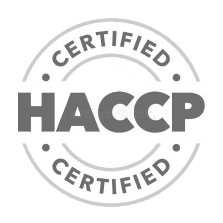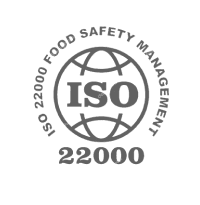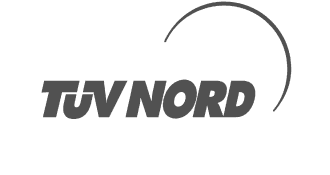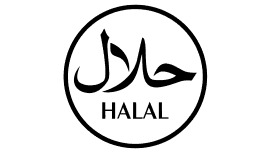Fueling Your Fitness: High Protein Meals for Strength and Satisfaction
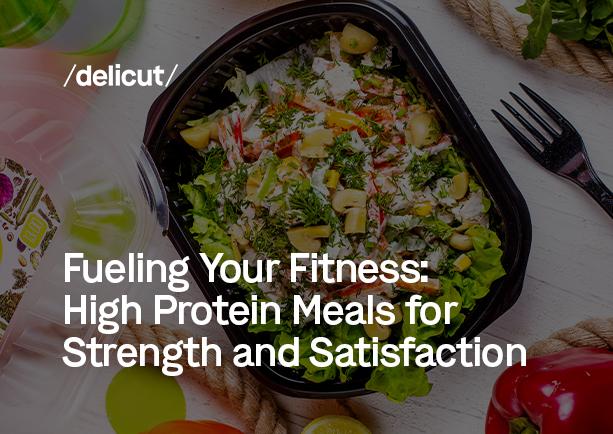
In the realm of fitness and wellness, the role of nutrition is paramount, and at the heart of a robust diet stands protein—the building block of muscles and a key player in achieving overall strength and satisfaction.
Whether you're a seasoned gym-goer or someone starting their fitness journey, understanding the importance of high-protein meals can significantly impact your results. This blog will guide you through high-protein lunch options that fuel your workouts and tantalize your taste buds.
Benefits of High-Protein Meals
Incorporating high-protein meals into your diet offers a multitude of benefits for overall health and wellness.
- Muscle Maintenance and Growth: Protein is crucial for maintaining and building muscle mass. Whether you're an athlete looking to enhance performance or someone aiming to preserve muscle during weight loss, adequate protein intake is essential.
- Satiety and Weight Management: High-protein meals contribute to a feeling of fullness and satisfaction, reducing the likelihood of overeating. This can be particularly beneficial for those striving to manage or lose weight, as it helps control appetite and promotes better food choices.
- Metabolic Boost: The thermic effect of food (TEF) is higher for protein compared to fats or carbohydrates. This means that the body expends more energy to digest and process protein, potentially contributing to a modest increase in calorie expenditure.
- Blood Sugar Regulation: Protein, when consumed in conjunction with carbohydrates, can help stabilize blood sugar levels. This is especially important for individuals with diabetes or those aiming to manage energy levels throughout the day.
- Enhanced Recovery: For individuals engaged in regular physical activity, high-protein meals play a vital role in muscle recovery. They provide the necessary amino acids for repairing damaged tissues and promoting overall recovery post-exercise.
Meal Plan 1: Protein-Packed Power Lunch
For a midday boost that satisfies your taste buds and fuels your body with essential nutrients, a high-protein lunch is the way to go. This meal plan is designed to provide a substantial dose of protein, promoting muscle repair and satiety to keep you energized throughout the day.
Menu:
1. Grilled Chicken Salad:
- Lean grilled chicken breast strips
- Fresh mixed greens
- Cherry tomatoes
- Cucumber slices
- Balsamic vinaigrette dressing
2. Quinoa and Black Bean Bowl:
- Protein-rich quinoa
- Black beans
- Avocado slices
- Diced bell peppers
- Lime-cilantro dressing
3. Greek Yogurt Parfait:
- Thick Greek yogurt
- Mixed berries (blueberries, strawberries)
- Granola for crunch
- Drizzle of honey
Pro Tips:
- Prep in Advance: Cook and store grilled chicken and quinoa in advance for quicker assembly.
- Stay Hydrated: Accompany your power lunch with water or herbal tea to stay hydrated and enhance digestion.
- This power-packed lunch supports your fitness goals and ensures a delightful and flavorful midday experience. Let's dive into the journey of nourishing your body with the goodness of protein.
Meal Plan 2: Energizing Vegetarian Lunch
For those embracing a plant-based lifestyle, this energizing vegetarian lunch is a delightful mix of flavors and nutrients that will power you through the afternoon. Packed with protein, fiber, and vibrant ingredients, these vegetarian dishes are as satisfying as they are nutritious.
Menu:
1. Chickpea and Spinach Salad:
- Protein-packed chickpeas
- Fresh spinach leaves
- Cherry tomatoes
- Red onion slices
- Lemon-tahini dressing
2. Sweet Potato and Black Bean Quesadillas:
- Roasted sweet potato slices
- Black beans
- Whole wheat tortillas
- Salsa and guacamole on the side
3. Fruit and Nut Quinoa Bowl:
- Quinoa
- Mixed fruits (berries, mango)
- Almonds and walnuts
- Coconut flakes
- A drizzle of agave syrup
Pro Tips:
- Protein Diversity: Ensure a variety of plzant-based proteins like beans, quinoa, and nuts for a well-rounded meal.
- Prep Efficiency: Cook extra quinoa and sweet potatoes to use in other meals during the week.
Meal Plan 3: Balanced Mediterranean-Inspired Lunch
Transport your taste buds to the sunny shores of the Mediterranean with this vibrant and balanced lunch. The Mediterranean diet is celebrated for its heart-healthy ingredients and delicious flavors, and this fitness meal plan captures the essence of that culinary tradition.
Menu:
1. Greek Salad with Quinoa:
- Fresh cucumbers, tomatoes, and red onions
- Kalamata olives and feta cheese
- Quinoa for added protein
- Drizzle of extra virgin olive oil and lemon dressing
2. Mediterranean Chickpea Wrap:
- Whole wheat wrap
- Chickpeas seasoned with Mediterranean spices
- Tzatziki sauce
- Sliced cucumbers and cherry tomatoes
3. Roasted Vegetable Couscous Bowl:
- Roasted eggplant, zucchini, and bell peppers
- Fluffy couscous
- Pine nuts for crunch
- Garnish with fresh basil and a splash of balsamic glaze
Pro Tips:
- Herbs and Spices: Embrace the Mediterranean flavor profile with herbs like oregano, basil, and thyme.
- Olive Oil Riches: Use extra virgin olive oil generously for its health benefits and rich taste.
Conclusion
We've explored three diverse fitness meal plans, each offering a unique combination of flavors, nutrients, and culinary experiences. As you embrace these meal plans, remember the importance of variety and balance in your diet. Feel free to mix and match, adapting the plans to suit your preferences and dietary requirements. The key is to enjoy nourishing, delicious meals that fuel your body and delight your senses.
With these lunch ideas, you're not just eating; you're embarking on a culinary adventure that celebrates health, wellness, and the joy of good food. Here's to many more delicious and satisfying lunches on your journey to a healthier, happier you!
FAQs
1. Why is protein important in our diet, and what are the benefits of consuming high-protein meals?
Protein is a vital macronutrient essential for various bodily functions. It plays a key role in building and repairing tissues, supporting immune function, and producing enzymes and hormones. Including an adequate amount of protein in your diet promotes overall health and well-being.
2. What are some good sources of protein for those looking to increase their protein intake in meals?
Excellent sources of protein include lean meats, poultry, fish, eggs, dairy products, legumes, nuts, and seeds. Plant-based options like tofu, quinoa, and lentils are ideal for those following vegetarian or vegan diets. Variety in protein sources ensures a diverse range of essential amino acids.
3. Can high-protein meals help with weight loss or muscle building, and how should they be incorporated into a fitness routine?
High-protein meals can aid in weight loss by promoting satiety, reducing overall calorie intake, and preserving lean muscle mass. For those engaged in fitness or muscle-building goals, protein is crucial for muscle repair and growth. Including protein in pre- and post-workout meals enhances recovery and supports muscle protein synthesis.
4. Are there any potential health concerns or considerations when consuming a diet rich in protein?
While protein is essential, it's important to maintain a balanced diet. Some concerns may arise with excessive protein intake, such as potential strain on kidneys for individuals with pre-existing kidney conditions. However, for the majority, a well-balanced diet with an appropriate amount of protein is safe and beneficial.
5. What are some delicious and easy-to-make high-protein meal ideas for different dietary preferences, such as vegetarian or vegan options?
For a quick and tasty high-protein meal, consider a grilled chicken salad with a variety of colorful vegetables. Vegetarians can enjoy a chickpea and vegetable stir-fry with quinoa. Plant-based protein sources like lentils and beans can be incorporated into soups or stews for a hearty and nutritious meal.
Trending Searches:
Meal Plan Dubai | Affordable Meal Plans Abu Dhabi | Meal Plan Ajman | Meal Plan Al In | Meal Plan Sharjah | Meal Plan Subscription
Read More:
Healthy Dry Snacks Fueling your Body When youe Out and About
Prioritizing your Health Top 5 Perfect Meal Ideas for your Health
Healthy Food Swaps Small Changes for Big Health Benefits
Related Blogs
The Burnout Diet
Jan 30, 2026 | 8The mental load of “What should I eat today?"
Jan 22, 2026 | 8The real glow-up starts with your gut health
Jan 14, 2026 | 8Healthy food that doesn’t taste like “Diet Food”
Jan 17, 2026 | 8Why do most people in the UAE get their calories wrong
Dec 8, 2025 | 6DASH Diet Meal Plan
Nov 11, 2025 | 8Fatty Liver Meal Plan
Oct 31, 2025 | 8Pregnancy Diet Meal Plan
Oct 27, 2025 | 82000 Calorie Meal Plan
Oct 1, 2025 | 8Intermittent Fasting Diet Plan
Sep 5, 2025 | 8